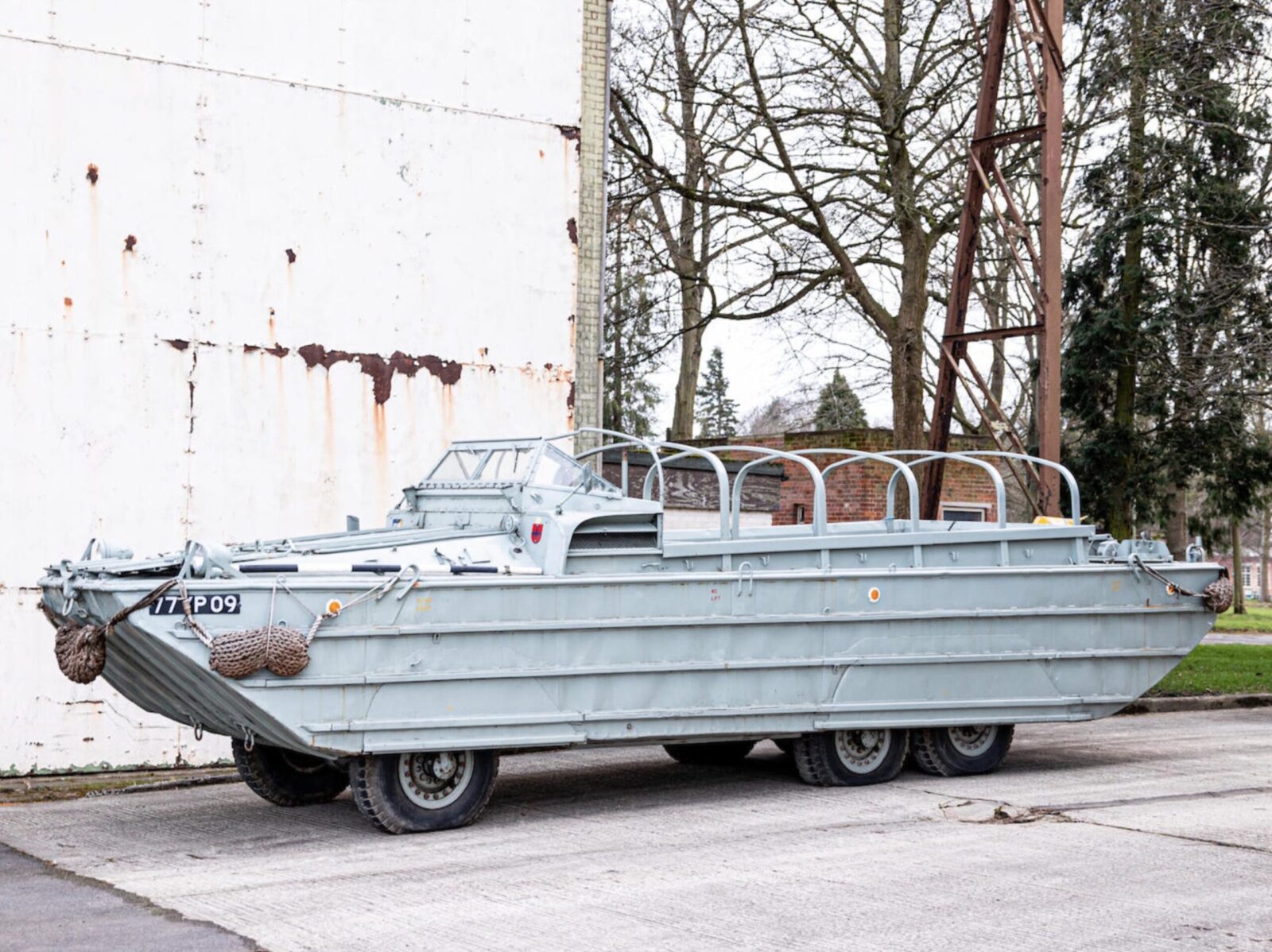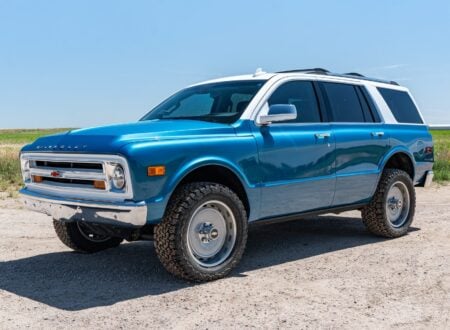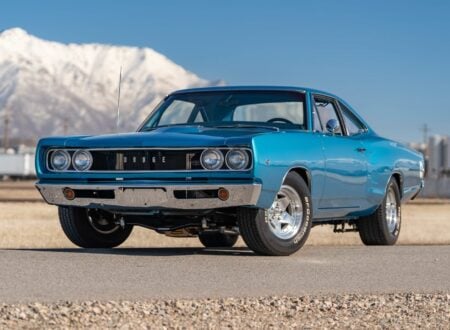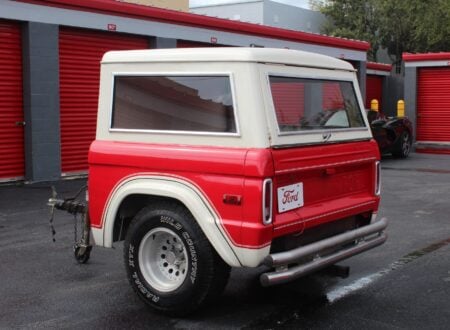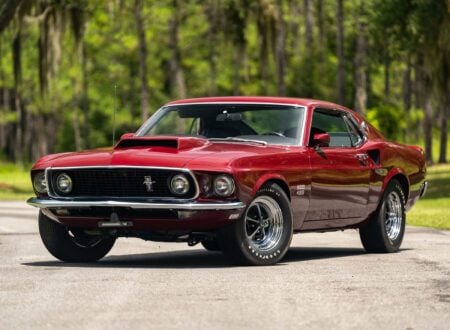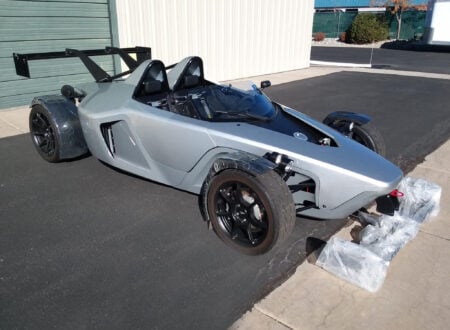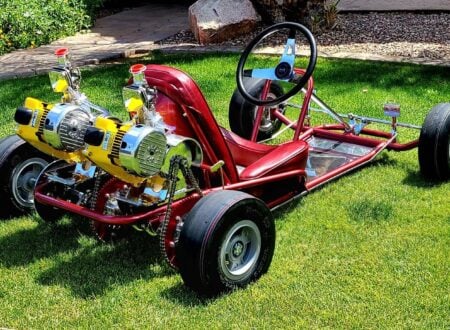The DUKW, better known simply as the “Duck”, is a six-wheel drive amphibious truck that was designed to land troops and cargo en masse in coastal locations without usable ports, or with hostile combatants making normal transport impossible.
The unusual looking truck was developed by famed yacht designer Rod Stephens, Jr. of Sparkman & Stephens, working with Dennis Puleston, a British deep-water sailor, and Frank W. Speir from MIT (the Massachusetts Institute of Technology).
The Mighty Duck (DUKW)
The DUKW needed to be capable of carrying over 2 tonnes of personnel and/or supplies across varied terrain and across water. It also needed to be able to drive up the soft sand or mud on beaches and river banks, it needed to be capable of handling rough seas, and lastly, it needed to be easy to mass-produce quickly.
The design used the cab-over version of the GMC CCKW six-wheel-drive military truck as its starting point. This was done to simplify maintenance and parts supply, as the CCKW was already being produced in significant numbers.
A new steel hull was welded to the chassis and formed into a simple water-tight vessel with a flat bottom, flat sides, and an angled bow/stern designed to give the best possible entry and departure angles.
Above Video: The the DUKW in action during WWII in this period film.
The US military were initially unimpressed with the prototype DUKW and it looked destined to be cancelled. This would have been a considerable blow to the Allied forces who would use the DUKW extensively later in the war for beach landings against the Japanese in the Pacific and against the Axis in Europe – including significant action during the beach landings at Normandy during D Day.
What saved the DUKW project was a storm that left a United States Coast Guard patrol craft aground on a sand bar near Provincetown, Massachusetts, leaving the lives of all aboard her in serious jeopardy.
Other vessels had tried and failed to reach the stricken boat but none had been able to. As it happens the experimental DUKW was in the area for demonstrations, it was able to reach the Coast Guard craft and rescue the seven crew members despite the winds of 69 mph and torrential rain.
The DUKW was approved shortly afterward and many thousands would be built, fulfilling a much needed role in the armed forces of the United States, Australia, Great Britain, Canada, and the Soviet Union. They were powered by a 4,425cc six-cylinder engine sending power to all six wheels through a transmission with 10 forward speeds and two reverse.
Many of them remained in service after WWII with some also serving in the Korean War. A significant number are in operation to this day as tourist sightseeing vehicles and in a few search and rescue services.
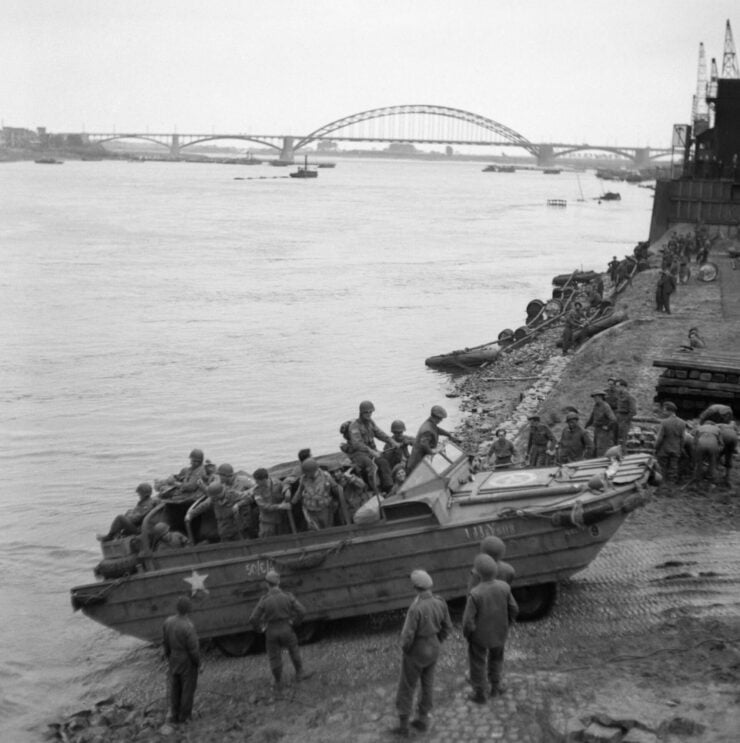
Above Image: A British DUKW carries supplies and American paratroopers across the Waal river at Nijmegen, 30 September 1944. Image courtesy of the British Imperial War Museums.
The 1943 GMC DUKW Shown Here
The GMC DUKW you see here served during WWII and later joined the collection at the School of Mechanical Transport in Leconfield and remained the property of the Ministry of Defence.
From there it would be loaned to the Museum of Army Transport in Beverley, Yorkshire where it would be maintained and kept running as a display for public viewing.
After this time it was drained of fuel and decommissioned, it’s been in storage now for a number of years and would require recommissioning before being used again on the road or water.
It’s now due to roll across the auction block on the 20th of March at the Bonhams MPH March Auction, you can click here if you’d like to read more about it or register to bid. The estimated hammer price is between £18,000 and £20,000 or approximately $25,000 to $28,000 USD.
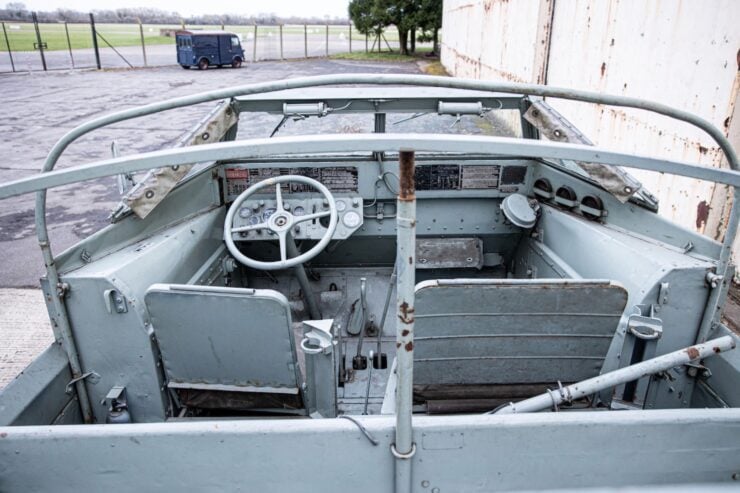
Above Image: The driver sits on the left and operates the controls with with 360º of visibility with the roof is down.
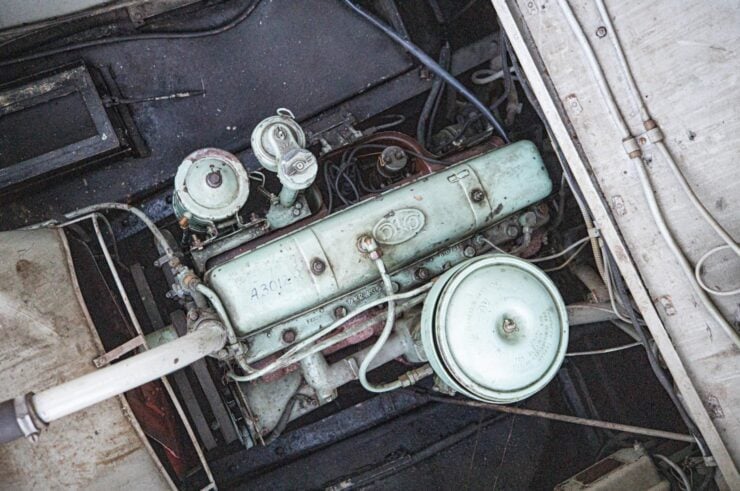
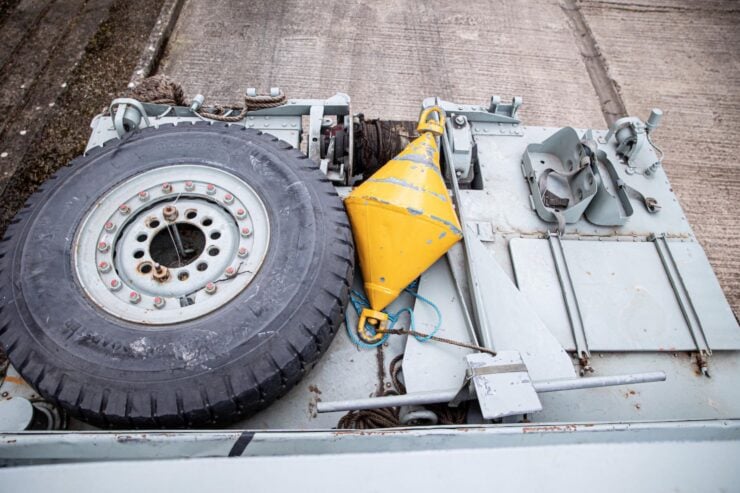
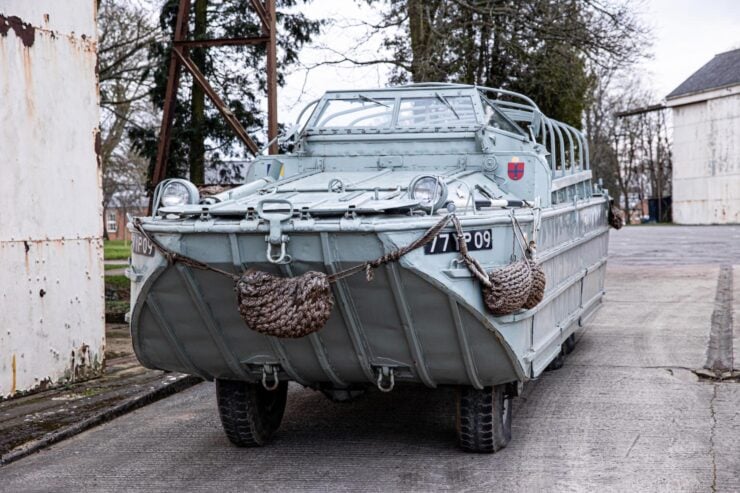
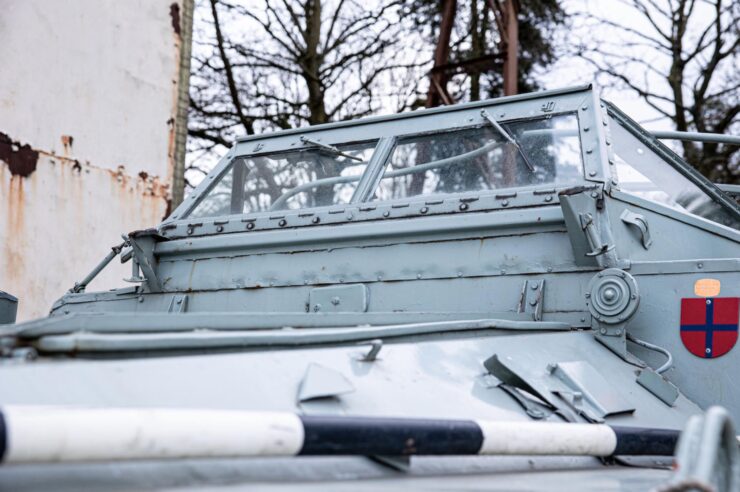
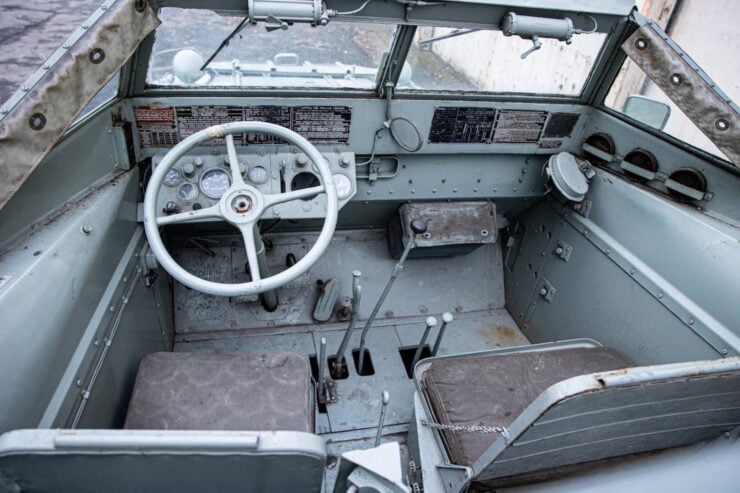
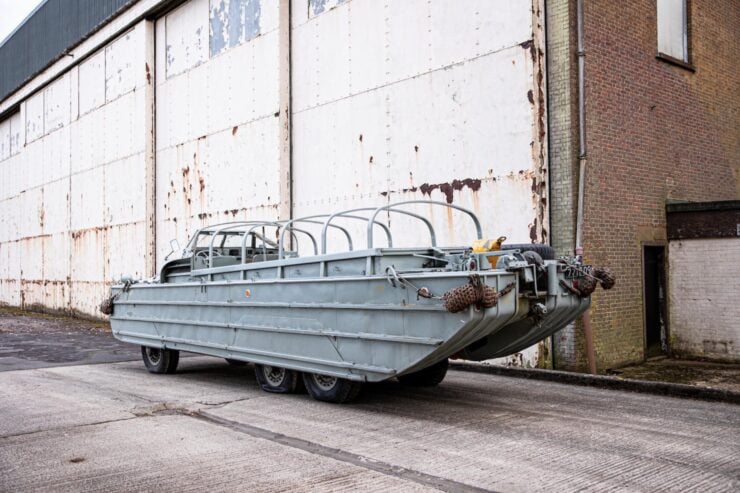
Images courtesy of Bonhams

